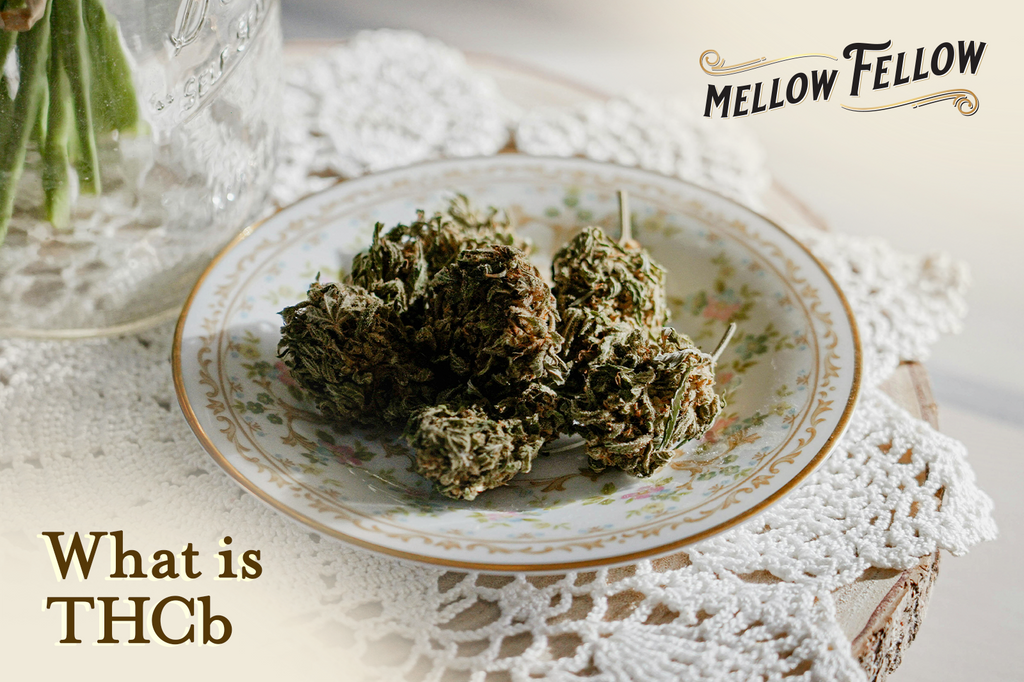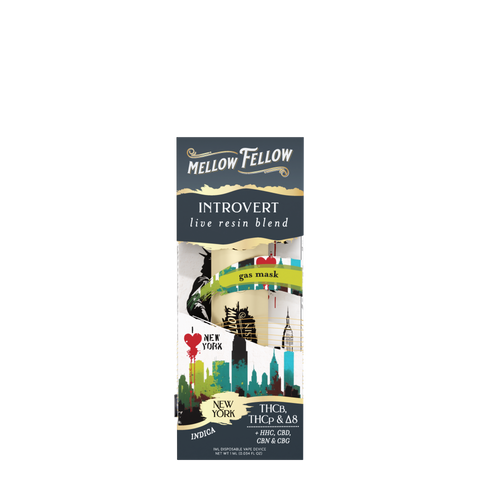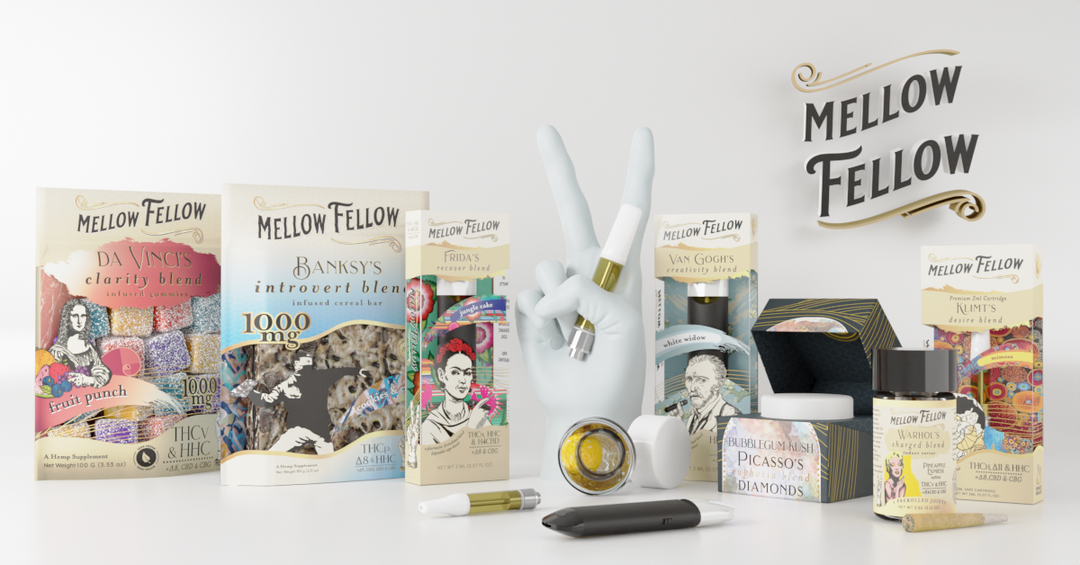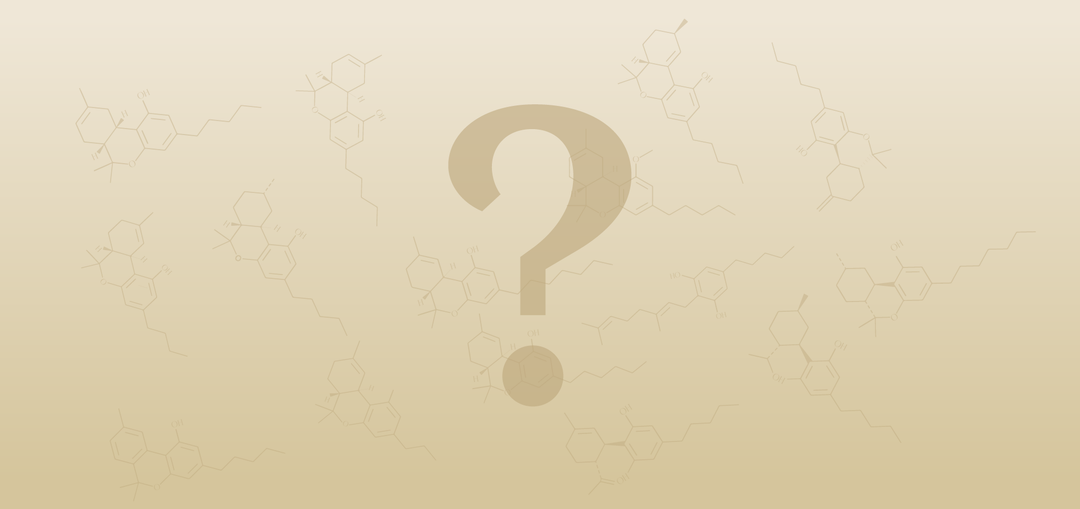What is THCb Cannabinoid?

Cannabis is like a treasure trove, with each discovery unveiling a new facet of its vast potential. THCb, or tetrahydrocannabutol, is the latest gem capturing the attention of researchers and users alike.
As the cannabis horizon keeps expanding, so does our understanding of the complex chemistry of this plant. In addition to opening a new dimension of possibilities, THCb is proof of the perpetual discovery cannabis research unveils. But what exactly is THCb? If you have seen it lately on the labeling of some cannabis products and have asked yourself this question, you are on the right path to finding the answer!
Below, we'll delve into the intricacies and unique properties of THCb, from its molecular structure to its effects and potential applications. Join us as we navigate the new frontiers of cannabis research with THCb!
Want to know more about functional relaxation? Try our THCb products now!
Key Takeaways
- THCb, also known as butyl-THC or delta-9 tetrahydrocannabutol, is a phytocannabinoid that naturally occurs in the cannabis plant and shares structural similarities with THC, the psychoactive compound in cannabis.
- THCb is a homolog of THC, interacting with the endocannabinoid system in a similar way, primarily targeting cannabinoid receptors in the body.
- Yes, THCb will get you high. Research suggests that THCb may indeed be psychoactive, albeit milder than THC.
- While it exhibits a greater affinity for CB1 and CB2 receptors, akin to THCp, user reports suggest THCb’s potency is quite similar to Delta 9 THC.
- The current snapshot of THCb unveils a compound with unique properties and potential health benefits.
Understanding THCb
THCb, also known as butyl-THC or delta-9 tetrahydrocannabutol, is a phytocannabinoid that naturally occurs in the cannabis plant. It shares structural similarities with THC, the psychoactive compound in cannabis responsible for giving you the “high”.
Actually, the only difference between Delta 9 and THCb is the substitution of THC’s pentyl side chain with a butyl side chain. This subtle molecular distinction gives rise to the unique properties that make THCb stand out within the larger THC family.
THCb was first discovered in the 1940s with the birth of cannabis research. But, it's only been a few years since scientists learned to synthesize THCb from other major cannabinoids, such as CBD. Consequently, manufacturers and brands have taken advantage and commercialized the unique properties of this rare and versatile cannabinoid.
In preliminary animal studies, THCb showcased promising THC-like effects. Researchers noted decreased pain, slowed reaction time, and deeper sleep, hinting at potential anti-inflammatory and analgesic properties.
As we unravel the mysteries of THCb, its distinct characteristics beckon further exploration into the expansive realm of cannabinoids.
What Does THCb Do?
As we dive into the distinctive characteristics of THCb cannabinoid, its unique features become more evident. THCb is a homolog of THC, interacting with the endocannabinoid system in a similar way, primarily targeting CB1 and CB2 receptors in the brain and the whole body.
Nonetheless, THCb's molecular structure sets it apart from the major cannabinoids like THC and CBD. While sharing a similar molecular framework with THC, the substitution of a pentyl side chain with butyl gives THCb its individuality and unique set of effects.
While research shows that THCb's interaction with the body's endocannabinoid system is similar to other cannabinoids, it may offer a different experience, influencing physiological processes in a distinct manner.
Its interaction with CB1 and CB2 receptors in the brain adds complexity to its effects, with a reported higher binding affinity to CB1 receptors than THC but with milder, more cerebral, uplifted effects.
Does THCb Get You High?

The burning question on many minds: does THCb get you high? Summary answer: Yes, THCb will indeed get you high. Research suggests that THCb has an affinity for the CB1 receptors just like THC, albeit potentially milder. The slight differences in THCb’s molecular structure influence its interaction with the body's endocannabinoid system, so its impact on physiological processes differs from other THC isomers.
THCb's distinctive effects open doors to potential therapeutic benefits, although further research is essential for a comprehensive understanding of its full range of benefits.
Be that as it may, the particular nature of THCb's psychoactive properties provides a unique experience, making it a one-of-a-kind cannabinoid.
Another reason why THCb has been gaining popularity and sparking curiosity in the cannabis scene is because of the role it plays in complementing other compounds in cannabinoid blends.
So, just as there are strains that are great for experiencing the entourage effect, THCb, with its ability to boost the effects of other cannabinoids and terpenes, is also ideal for enhancing the synergy of cannabis compounds.
How Strong is THCb
While it exhibits a greater affinity for cannabinoid receptors, akin to THCp, user reports suggest THCb’s potency is quite similar to Delta 9 THC in practice. The distinction lies in the nature of its effects, as THCb appears to be more cerebral than THC.
In terms of strength, THCb displays great versatility, catering to various preferences and needs. In low doses, it may offer functional relaxation suitable and a mild and enjoyable experience. For those seeking intensity, high-dose smoke sessions with THCb is an option, considering it could be as potent and effective as THCP.
However, THCb's effects are longer-lasting, which makes it a great complement to other compounds in cannabinoid blends. As users explore the unique effects of THCb, it unveils new possibilities within the ever-expanding world of cannabis products.
The Future of THCb Research and Potential Applications
As researchers work to discover the full potential of THCb, it looks promising. The current snapshot of THCb reveals unique properties and potential health benefits, but we've just seen a fraction of it. More work is needed to shed light on THCb’s intricacies and uncover the full spectrum of effects this fascinating cannabinoid carries.
And so, the potential applications of THCb extend beyond the horizon. This cannabinoid’s future looks bright, with preliminary research suggesting the following medical applications:
- Pain management: THCb exhibits analgesic properties in animal studies, so it might help reduce pain in pain-defined complications.
- Anti-Inflammatory: Early findings suggest THCb may have anti-inflammatory properties, highlighting cannabis as an alternative avenue for therapeutic applications.
- Anxiolytic properties: The relaxing properties of THCb positions it as a potential remedy for stress and anxiety. So, similarly, since some terpenes are great for stress and anxiety, THCb’s mild psychoactivity could also contribute to calm and relaxation.
Recreational purposes:
- Unique psychoactivity: THCb's unique psychoactive effects could contribute to uncommon and enjoyable recreational experiences.
- Versatile relaxation: Whether in low doses for everyday use or high-dosage smoke sessions, THCb offers adaptable options for users seeking different levels of intensity.
Final Thoughts
THCb has emerged as a cannabinoid of interest, inviting scientific attention into its special attributes. From its mild psychoactivity to its anxiolytic effects and role in the entourage effect, THCb is helping to redefine the possibilities that cannabis products offer, serving as a tool to achieve new specific outcomes.
Furthermore, THCb shows promise — it exhibits analgesic and anti-inflammatory potential, a unique psychoactive nature, and ability to complement cannabinoid blends.
In conclusion, it's crucial to keep a watchful eye on ongoing research shaping THCb’s status within the cannabinoid family. The potential impact of THCb on the cannabis industry is a story yet to be fully written, and each discovery adds a new chapter to this intriguing tale.
As we expand our knowledge of cannabinoids, researchers will continue guiding us through THCb's uncharted territories, helping us understand its range of effects and potential therapeutic applications. So, watch this space!
Where Can You Buy THCb Online?
With the increasing acceptance and demand for cannabinoid blends and THCb products, getting them is easier than ever. Local dispensaries often offer various options, depending on preferences and needs. However, for a hassle-free purchase and considering safety and quality, buying online from trusted brands is the way to go.
Still, when purchasing THCb products online, it's essential to double-check the brand and product's authenticity. Certificates of Analysis (CoAs) and user reviews is another way to ensure that you're getting products of proven quality and potency.
But anyway, if you're searching for top-shelf THCb products online, you just hit the bullseye! At Mellow Fellow, we have a wide catalog of user-acclaimed THCb products, including our Introvert & Creativity Blend THCb Live Resin Vape Cart Duo, the AK-47 Introvert Blend and Introvert NYC Gas Mask Live Resin Disposable Vape disposable vapes. At Mellow Fellow, we proudly guarantee a premium experience. So, if you're looking for quality THCb products, come to us!

THCb: Frequently Asked Questions
Is THCb Strong Compared to Other Cannabinoids in Terms of Potency and Effects?
THCb's potency and effects vary compared to other cannabinoids, as each cannabinoid has unique effects and potency. However, research suggests THCb is as strong as Delta 9, and may have mild psychoactive properties.
How Potent is THCb?
User reports suggest THCb's potency is similar to Delta 9 THC, albeit with a more active and cerebral nature. Still, this potency might vary among individuals as every person reacts differently to cannabinoids.
Is THCb Stronger than Delta 9?
No, Although THCb has a higher affinity for the CB1 and CB2 receptors in our endocannabinoid system, Delta 9 THC is slightly stronger than THCb. Still, THCb's effects are distinct and enjoyable in their own right.
What is the Difference Between THCb and THCp?
The main difference between THCb and THCp is their molecular structures and potency. THCb is a milder homolog of THC, while THCp is 10 to 15 times more potent than regular THC and has a longer alkyl chain.
How Does THCb Make You Feel?
THCb's effects can vary, but users often report functional relaxation, manageable psychoactivity, and a longer-lasting experience compared to Delta 9 THC.
Share on Social








Leave a comment